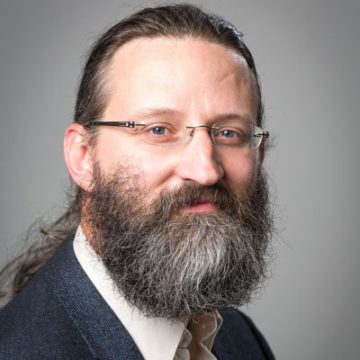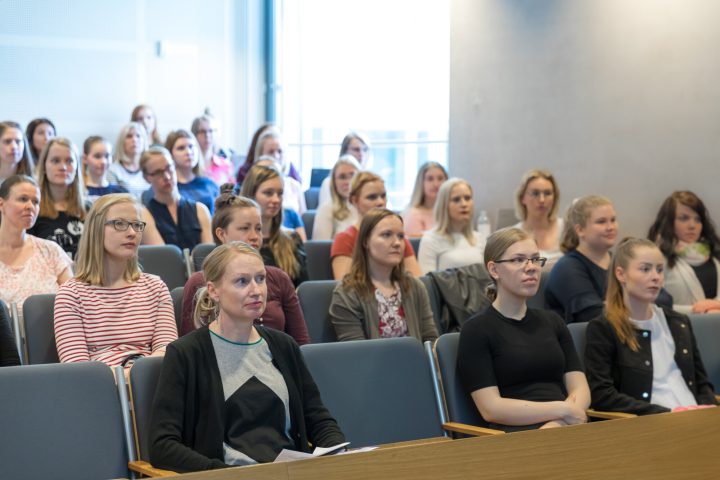A faculty in the heart of the city.

Louis Clerc
Dean
Faculty of Social Sciences
Welcome to the new blog of the Faculty of Social sciences.
Our faculty was founded in 1967, when social sciences split from the faculty of Humanities. In a University a hundred years old, we were for a long time the youngest and then, after the creation of the faculty of Education in 1974, the second youngest faculty. After the foundation by the University in 2020 of a faculty of Technology, we are the third youngest.
Our faculty hosts more than 1800 students and a staff of about 250 researchers and teachers. It welcomes every years tens of foreign students and its researchers are also an international bunch, originating from Finland, Canada, Germany, Russia and so on.
This data however does not answer the main question: what does our faculty do?
We could start from the classical definition of social sciences: social sciences are a mutlidisciplinary field devoted to the study of societies and the relationships among individuals within those societies.
The term was formerly used to refer to the field of sociology, that studied societal phenomena and structures. Today social sciences are a wide and multidisciplinary field, its contours varying according to local academic traditions. Our faculty mixes social and behavorial sciences into a varied set of scientific approaches, from philosophy to contemporary history, sociology to speech-language pathology, social work to psychological clinical work. Our metholodgies go from experiences to historical research, ethnographical studies to quantitative social research and the like. But the object of these studies remains the same: we research societies, their structures, their phenomena, and the behaviors of individuals in society, both in and outside Finland.
Our faculty is made of three departments, with research interests that give a good idea of the faculty’s multidisciplinary.
The Department of Psychology and speech-language pathology specializes in studying the cognitive processes and their pathologies. Research deals with those in different environements and at different levels, often in connection to other disciplines both in the faculty and outside it.
The department of social research deals in its researches especially with social and economic inequalities, ways and politics aiming at mitigating these inequalities. The University of Turku’s first flagship project, Invest, works in connection with the department on fixing the welfare-state’s current challenges.
The faculty’s third department gathers sections of contemporary history, philosophy and political science. These sections deal in particular with politics, democracy and the phenomenona involved in democratic processes. The department is also a regional and national focus of area studies, with reaesrches on Northern America, Asia and Europe.
In addition to research, the other basic tasks of the university are well reflected in the activities of this diverse faculty. First, the faculty is a teaching center that trains students in a diverse field of employment. The strengths of our education are its breadth, its versatility and its basis in scientific research. In practice, this means that we have both directly qualifying fields with high demand (social work, psychology…) and general fields that retain strong relevance to working life. A Contemporary history graduate can for example become a diplomat or a PR professional.
Our faculty is thus clearly in the middle of society, not isolated from it, providing relevant teaching linked to employment opportunities, specialization training and lifelong learning. The first way we impact society is through research and teaching, but our faculty is also in constant dialogue with the society around them, through Alumni activities, positions of trust for experts and contacts with the media. On many levels, our faculty is a clearing house for cutting-edge expertise.
The timeliness of this expertise was evident in 2020, when the COVID-19 virus disrupted our entire world. In the face of this pandemic, technical solutions were important but not sufficient. The vaccine was, of course, the most important scientific achievement of the year, but we also found that a pandemic is a social phenomenon. Research projects began to examine students’ responses to distance learning, anti-vaccine ideologies, pandemic-induced political processes, and historical examples of major crises.
Particularly complex global problems are not only solved by technological magic bullets, but require the effort of entire scientific fields working together – including an active social science field awake to the voices of societies.
One last question here: why a blog? The importance of communication is already well known in our faculty: projects, subjects, programs already have their own blog activities. Announcements and news are handled at the faculty and university level. But the goal of this blog is not to act as a news column. Its aim is to highlight research and teaching activities, projects, subjects and separate centers in the faculty. In the blog, faculty members reflect on their work, work environment and the effectiveness of their work. At the same time, we want to encourage the different levels of the faculty, from students to student organizations, from sections to departments, to bring forth their own perspectives.
Over time, the blog will hopefully gather information about what is being done in our faculty, who is doing it, and how. Thanks in advance to everyone, and good reading moments to the blog audience!
